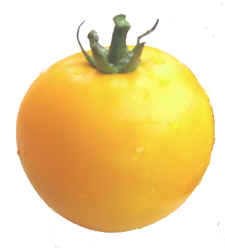 We’ve been eating meals of late made from what we’ve grown ourselves here at Edelen Acres. I’m especially diggin’ the fresh herbs. Made salsa out of the wide variety of tomatoes we’re growing (man, those Lemon Boys are superb!) and tossed in our own cilantro. Scrumptious!
We’ve been eating meals of late made from what we’ve grown ourselves here at Edelen Acres. I’m especially diggin’ the fresh herbs. Made salsa out of the wide variety of tomatoes we’re growing (man, those Lemon Boys are superb!) and tossed in our own cilantro. Scrumptious!
Anyone who reads here long enough knows I support the neo-agrarian lifestyle. I think it best fits God’s original intent for us in the Garden. Local economies. Permaculture. Peace. Tim Keller may love the city and use Jonah as his anti-agrarian homeboy, but Jonah went back home at some point—and home wasn’t the bustling metropolis of Nineveh. For me, the city’s okay. But just okay.
And I’m going off topic…
Eating our own salsa this evening got me thinking about the joys of fruitfulness. To watch the fruit grow and then be put to good use, that’s meaningful. It carries in it the seed of God purpose for us all.
But I wonder how fruitful we are. Finding fruit in America feels nigh unto impossible as we’re so distracted by LIFE™ to give any care to spiritual fecundity. If we’re not making disciples, though, then just what are we doing?
When we talk about knowing God, we fall back into the usual talk of reading the Bible more, or praying more, but we never, ever talk about living out our fruitfulness more. It’s as if we’ve divorced God from His working through us.
But I think that the best way to know God is to do what He says. He honors those who obey Him by revealing more of Himself. And it’s the kind of revelation you can’t get except through obedience to His calling.
Why does doing the Lord’s work get such short shrift when we talk about pressing on to know God? I think I’ve learned more about the depths of the Lord’s heart from doing what He tells me to do (feed the hungry, communicate the Gospel to the lost, love my brother, etc.) than nearly any other source.
And that’s an offshoot of fruitfulness, isn’t it? We will be known by our fruits and we will know Him more deeply because we are fruitful. He’ll continue to expand our gardens, and we’ll find more of Him as those gardens grow.
So how does your garden grow?
